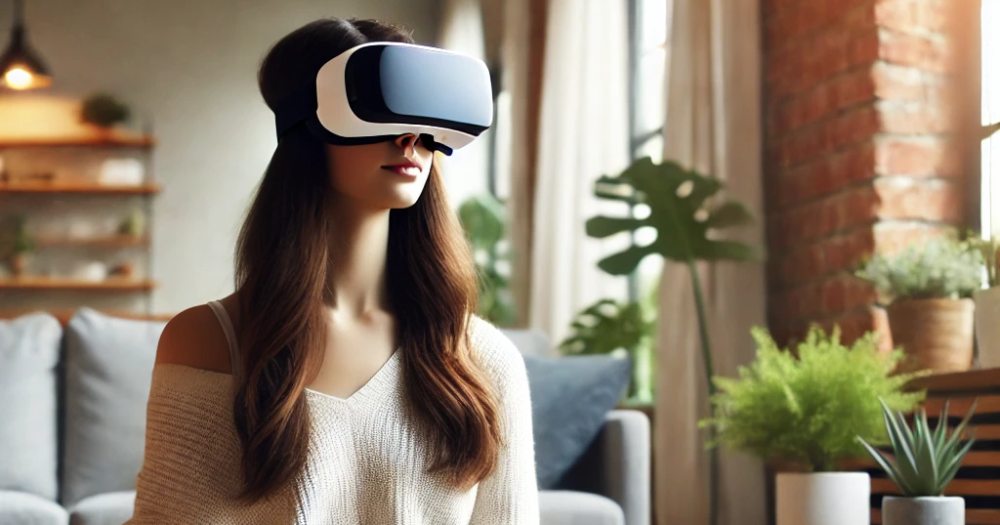Study: VR meditation can alleviate depression and anxiety symptoms

Imagine slipping on a headset and finding yourself on a sunlit beach, waves lapping gently as birds sing overhead. Now, imagine that this virtual escape isn't just a fleeting distraction but a real tool to ease depression and anxiety. A fresh study from Texas A&M University suggests that meditation inside virtual reality (VR) isn't just a novelty — it's a game-changer for mental health.
"Treatments that use medications are the most effective in addressing mental health disorders, but they also can bring unwanted side effects," explains Dr. Junhyoung "Paul" Kim, one of the researchers behind the study. That's why experts are hunting for alternative treatments that help people regulate emotions like anger and sadness without relying on pharmaceuticals. And as it turns out, VR meditation might be just the thing.
How does it work?
The study put 25 adults diagnosed with depression and anxiety to the test. Armed with Meta's Oculus Quest 2 headsets, they dove into customized, 30-minute VR meditation sessions three times a week for ten weeks. Participants had the freedom to select their preferred environment — lush meadows, serene beaches, or tranquil forests — accompanied by soothing natural sounds.
Before and after each session, researchers measured emotional health through questionnaires and electrocardiograms, which tracked how well their heart rhythms synced with their nervous system. The results? A clear and measurable improvement in emotional regulation, with significant reductions in depression and anxiety symptoms.
"This is important knowledge for mental health professionals, clinicians, and caregivers," says Kim. "Meditation using immersive virtual reality has the potential to greatly benefit those in the United States who will experience depression at some point."
Why does it matter?
Depression isn't just about feeling sad — it's a heavyweight condition that can wreck lives. The World Health Organization predicts that by 2030, major depressive disorder will be the most common disease worldwide. And for those who suffer, the risks go beyond emotional turmoil. Depression is linked to serious health issues like cancer and diabetes, while anxiety often paves the way for substance abuse and other destructive behaviors.
Standard treatments often involve medication, but as Kim points out, pills aren't always the best solution. Side effects, dependency, and accessibility issues leave many searching for alternatives. That's where VR meditation shines. It's drug-free, engaging, and could be a lifeline for those struggling to find effective relief.
The context
The concept of meditation as a healing tool isn't new — it's been around for centuries. But blending it with immersive VR technology? That's a fresh twist. Previous research has hinted at the potential benefits, but this study provides hard data that supports what many have suspected: stepping into a calming virtual world can have a real-world impact on mental health.
As technology evolves, the applications for VR in healthcare are expanding rapidly. From pain management to PTSD treatment, virtual reality is proving to be more than just a playground for gamers. And now, with studies like this, it's clear that VR meditation isn't just hype — it's hope.
💡Did you know?
You can take your DHArab experience to the next level with our Premium Membership.👉 Click here to learn more
🛠️Featured tool
 Easy-Peasy
Easy-Peasy
An all-in-one AI tool offering the ability to build no-code AI Bots, create articles & social media posts, convert text into natural speech in 40+ languages, create and edit images, generate videos, and more.
👉 Click here to learn more


